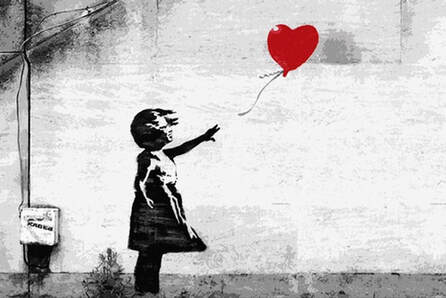|
‘The medical model doesn’t perfectly fit mental health – and it confuses a lot of people.’ (Emma McAdam) Is mental health all in the mind? I don’t think so, but I do believe we’re sometimes getting a bit lost in how we think about and approach it. Take Sam. He’s 27, talented and full of potential. Yet Sam often finds himself these days feeling jittery and irritable and struggling to concentrate. His partner finds his mood swings and erratic behaviour increasingly difficult to cope with. Feeling concerned, she took him recently to see his GP who referred him for a mental health assessment. The assessor asked Sam briefly over the phone to describe his symptoms, diagnosed his state as ADHD and recommended prescription medication to resolve it. Now step back with me for a moment. Consider human factors that lead to a sense of mental, emotional and physical well-being, and which can influence a corresponding felt-experience of unwellness if persistently absent in our lives. Things such as: safety and security; sense of purpose; engaging in positive and meaningful human relationships; ability and opportunity to exercise free choices; feeling of making a valued contribution in the world, especially for the benefit of others; achieving something worthwhile; fresh air; change of scenery; prayer, intimacy; sex; physical exercise; personal hygiene; laughter; diet; sleep; rest. Sam stays mostly indoors; sleeps until mid-afternoon; rarely washes; spends all night, every night, playing intense computer games; eats junk food; lives on high-caffeine energy drinks. He did have a job for 2 weeks at a call centre but resigned because he felt unhappy dealing with customer complaints. He has now been unemployed for some time and lives on state benefits. From a psychological and relational perspective, we could view ‘feeling jittery and irritable and struggling to concentrate’ as natural outcomes of Sam’s lifestyle choices, not as a pathological dysfunction requiring medication. Social prescribing could be a healthier response.
20 Comments
‘Language is power, life and the instrument of culture, the instrument of domination and liberation.’ (Angela Carter) In her challenging and ground-reclaiming polemic, Drop the Disorder, psychotherapist Jo Watson comments that, “The counselling profession (and in that I include psychotherapy) is helping to endorse a medical understanding of emotional distress that is based on ‘What is wrong with you?’ and not ‘What has happened to you?’” I heard a similar-but-different reframing of the issue from Paul Kelly at a Leading & Influencing Trauma-Informed Change workshop today, advocating a shift from “What’s the matter with you?” to “What matters to you?” The striking feature of both these examples is the profound impact of language on reflecting and reinforcing the ways in which people and situations are construed and responded to. In Jo Watson’s case, the first framing regards an issue as some form of dysfunction in an individual. The alternative looks beyond the individual to explore wider potential influencing factors. As radical social reformer Martin Luther King noticed, what appears at first glance as dysfunctional behaviour is sometimes a normal response to dysfunctional circumstances. In Paul Kelly’s case, similarly, the first framing locates a problem within an individual. It’s a form of pathologizing, implying that a person’s behaviour is a consequence of some internal defect. The alternative invites an exploration of the person’s underlying values and motivations. Behaviour that appears dysfunctional could be a natural response to healthy, unmet hopes and needs in a dysfunctional environment. Kenneth Gergen offers a stark warning here, pointing to risks of a medical model applied uncritically: ‘a diseasing of the population.’ 'The reality is that you will grieve forever. You will not 'get over' the loss of a loved one; you will learn to live with it.' (Kubler-Ross & Kessler) At 15, I was fatally wounded. At 18, I died. That’s how it felt and, at times, it still feels now. There are some scars that never heal. A trauma of unwelcomed loss is being forced, harshly, to let go of an imagined future, a hoped-for dream. This tearing experience can leave our hearts, our bodies, bleeding. I felt betrayed and shattered and spent day after day, year after year, pleading with God to take my life. I slid into a heavy, dark dysthemia. Nothing could bring healing, happiness or hope. It's fertile ground for addiction, to search for anything that will make us feel alive, provide even momentary relief. We may immerse ourselves in whatever distracts and enables us to avoid having to face again, all too wearily, those severe memories and tortured feelings. My own torment was that searing-painful images would surface over and over in my dreams, as if trying to reconcile the suffering at some deep subconscious level, yet leave me waking the next day in suicidal mood. I wish there was a simple answer, a miracle cure. I live in a culture that holds out delusional promises and expectations of a pain-free, pleasure-filled possibility of a life. I live in a world where hurt and damaged people, more and more, seek solace and escape in drugs or other diversions. I find my spiritual hope in Jesus who (to me surprisingly, yet in a strange way reassuringly) carries the scars of crucifixion after his resurrection. Whatever I may go through now, this will not end in death. Over the years I have learned, and am still learning, how to live with my own scars rather than to attempt to bury, hide or erase them. I’m still, at times, ambushed by grief. It takes me by surprise and leaves me temporarily reeling. I’ve learned to be thankful and, gradually, to allow people and relationships to drift away rather than to cling so hard. I’ve learned to discern how pain triggered from the past can reveal someone or something important that I’m not noticing here and now. How do you deal with your scars? How do you help others to do so too? (Nick is a change leadership consultant and trainer for trauma-informed practice agency, Rock Pool) ‘I was so focused on what I had lost, that I lost sight of what I had found.’ (Jerry Orbos) Orbos, a priest, recounted a story of when, as a small child living in a very poor village, he attended a fiesta. It was a special, exciting party and he was thrilled to be given a balloon. Some moments later, he was given an ice cream too. He could hardly believe it. On taking the ice cream, however, he accidentally let go of the balloon which floated away out of reach. Looking up helplessly, Jerry felt completely distraught. His mother, noticing his distress, whispered, ‘Jerry – look at your ice cream’. A loss that impacts deeply can leave us feeling hurt, mesmerised, transfixed and paralysed. We may struggle to breathe, as if caught in a trance state and unable – or unwilling – to break free. We may notice this when a person loses, say, a relationship, job or home that really matters to them. ‘What do you need?’ offers valuable empathy and support. ‘What are you not-noticing?’ can help break the gaze; enabling someone to see people, relationships and resources that lay hidden in plain sight. How do you help people to let go of what is lost? How do you help them to see what they can’t see? Ignorance is bliss - until we realise our ignorance. Therein lies a painful paradox at the crux of films like, The Matrix and Vanilla Sky. There can be something deeply unsettling, disorientating, releasing about a dramatic shift in awareness like a sudden waking from sleep. Our eyes are opened, we can see and now we face fresh possibilities, choices and responsibilities. Ironically, the existentialist French philosopher Jean-Paul Sartre described this experience bleakly as, ‘condemned to be free.’
This awareness-raising phenomenon raises important practical and ethical questions for those working in people professions. The Brazilian educator, Paulo Freire, emphasised the importance of 'conscientisation', critical consciousness-raising, as a means to liberation. He argued that people are in some ways unaware of themselves, their circumstances, until enabled to see through fresh eyes. This resonates with a Chinese proverb: ‘If you want to know what water is, don’t ask a fish’. A girl I was working with recently from a very different cultural background to my own reinforced this point: ‘I didn’t see myself until you saw me.’ Her interactions with me as an outsider enabled her to see herself in a new light – as if for the first time. This idea of metaphorically (and sometimes literally) stepping back to notice what we had previously not noticed, to critique and reframe our insights and experiences, to open up new choices and actions, is at the heart of reflective practice. Yet someone challenged me strongly on the ethics of this last night: ‘Who are we to raise others’ awareness like this? What if it leads them to be less happy, more frustrated in life?’ If we enable people to reflect, critique and de/reconstruct their current realities, what if they and others experience the net impact as negative? Is it always true that it is better to be aware than to be unaware? Who makes that decision? If you work with people, I’d love to hear your thoughts and ideas on this! ABC - Always Be Contracting. (Brian Watts)
A coach friend commented recently that he keeps annoying clients and is not sure why. He likes to challenge people’s thinking but they don’t always respond well. I asked, ‘Have you contracted first with your clients about how you will work together?’ Great questions at the outset can be, ‘What are we here to do?’ and ‘How shall we do this?’ It creates opportunity to discuss and agree what to focus on and what kind of relationship and ways of working will be most useful. I had another experience where contracting proved valuable. I had joined an organisation as a new team leader and one of my team members led a presentation. Afterwards, she asked if I could give her any feedback. I asked with a smile, ‘Are you asking for affirmation – or critique?’ ‘I’m so glad you asked that’, she replied. ‘I’m really just hoping I impressed you as my new boss!’ That opened a very different conversation about how we would like to work together in the future. What we are talking about here is similar to a counsellor establishing a 'therapeutic container’. It’s about creating psychological, relational boundaries, focus and ground rules together that enable honest, robust conversations to take place (high in support and high in challenge) without feeling threatened – because that’s what we’ve agreed to do in that context. We can renegotiate the terms of engagement as time or things move on or if the context for the relationship changes. I worked as coach with a leadership team that was struggling with internal conflict. It felt caught in a vicious cycle and couldn’t find a way out of it. I invited the team to imagine a team meeting that, by contrast, felt incredibly inspiring and effective. They painted a vivid picture of a very positive team experience. ‘What were you and others doing that made the difference?’ They agreed behaviours, began to practise them and the team’s experience was transformed. The core principle here is about making the implicit explicit. Rather than assuming that different people share the same underlying assumptions and expectations, raise them to the surface – especially if establishing new relationships or working with people from different backgrounds. ‘ I think a great outcome would be X. Is that what you think?’, ‘I see my role in this as X and yours as Y. How do you see it?’, ‘I’d find it useful if you would X. What would you find useful from me?’ If things feel tense or stuck, I find it useful to imagine myself speaking from an observing place, as if I’m standing outside of the room looking in, and comment dispassionately on what I’m noticing here-and-now. ‘I’m aware this conversation is going in circles without moving forward…and I’m wondering how we might approach this differently to get a different result.’ It invites insight from the other person too and opens opportunity to contract to solutions that will work for both. |
Nick WrightI'm a psychological coach, trainer and OD consultant. Curious to discover how can I help you? Get in touch! Like what you read? Simply enter your email address below to receive regular blog updates!
|







 RSS Feed
RSS Feed